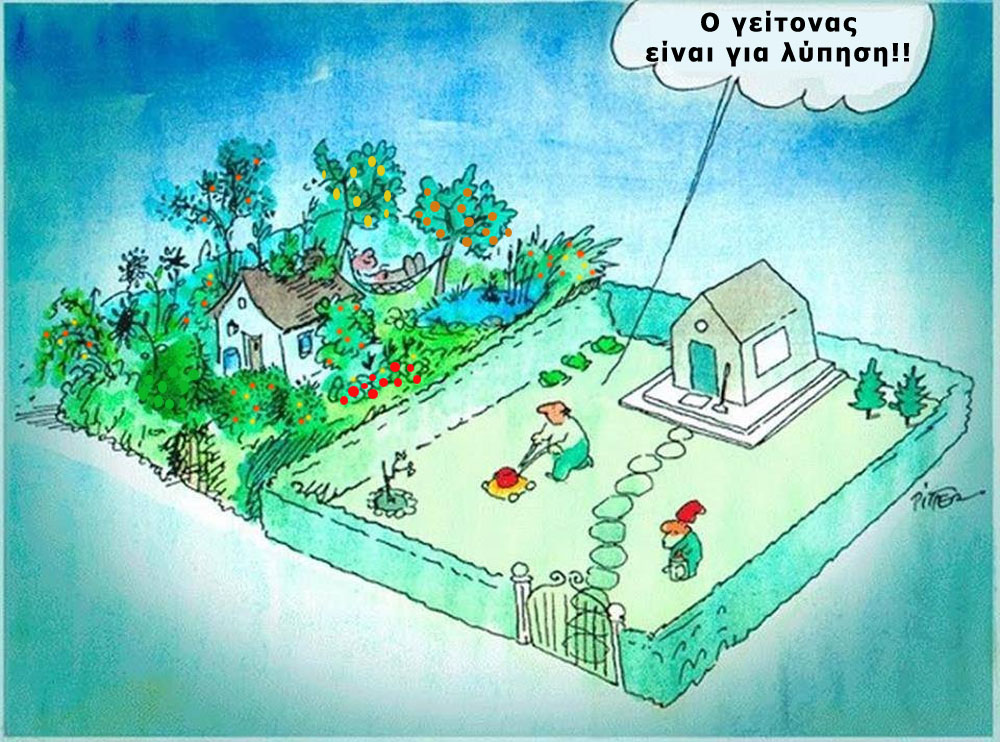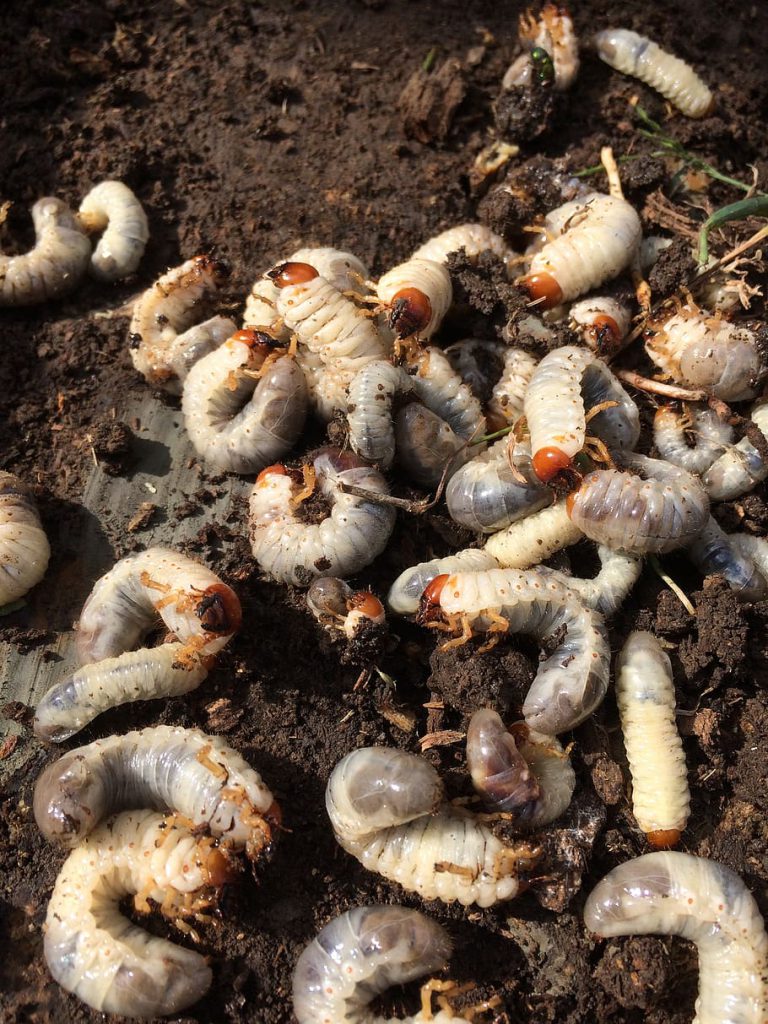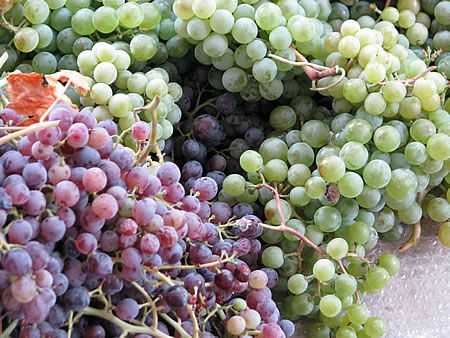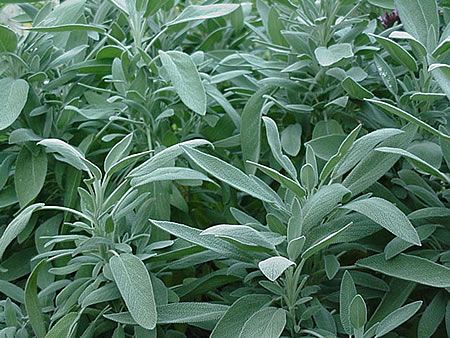Growing and producing your own food in a garden is not a clean process, but it gives you peace of mind, clean and healthy food along with invaluable psychological balance.
On the other hand you may have a garden for photoshoots and show off in design magazines, that doesn’t produce anything and costs a lot to maintain.
Your “mess” garden is for you an organic construction site
You need to get your hands and feet dirty. Have manure, cuttings, compost space, irrigation pipes.
Your garden’s land to be messy from plowing and hoeing.
To make the most of every inch of soil.
To ally yourself with nature and go with its flow and rhythm, not against it.
To take advantage of the microclimate and what the natural landscape has to offer.
You can’t have a “showcase” garden if you are growing.
Your garden is an organic construction site. And all construction sites have their clutter because they produce work.
Your garden to the uninitiated people will be dirty, messy, unkempt. A mess.
But to you it will be beautiful, natural, productive site. A true paradise.
Everything will have its place in this garden. Ants, spiders, ladybugs, praying mantises, bees, worms, birds, will be welcome and proof of life.
To the neighbors all this evidence of life, they may be perceived as annoying pests, candidates for extermination as alien beings in their garden.
For some neighbors your garden is a mess
But there is the other point of view that sees the above garden as a garden to be pitied.
The sudden “economic growth” (on borrowed money) that took place in Greece in the years between 1985 and 2009 created a generation of “neighbors” who tried to proclaim their “success” and social status through their homes and gardens.
To renounce their roots in the village and the agricultural works.
The above economic “development” was in the majority of cases based on easy money. And we know that easy money does not come with work. It comes in other ways.
The lack of real education and consideration of the whole thing has helped a lot in this.
So many “neighbors” sprang up with “villas”, lawns, fountains. The surrounding area, instead of a garden, became a sterile, clean, artificially landscaped environment.
“Neighbors” with artificially landscaped environments, alien to the natural landscape, requiring a lot of money and effort (by crews) to maintain.
Exotic gardens in Mediterranean environments. Alien to the Mediterranean landscape.
Gardens that require waste of precious water (often from illegal drilling) and futile labor to maintain. A constant battle against nature.
Environments and gardens that do not produce. But they consume.
Gardens that an accountant would add to liabilities rather than assets.
Gardens that are not an investment in creation and productivity.
Gardens that are liabilities in the home economy.
So, whose garden is to be pitied?
You and these people are neighbors. So whose neighbor’s garden is pitiful after all?





